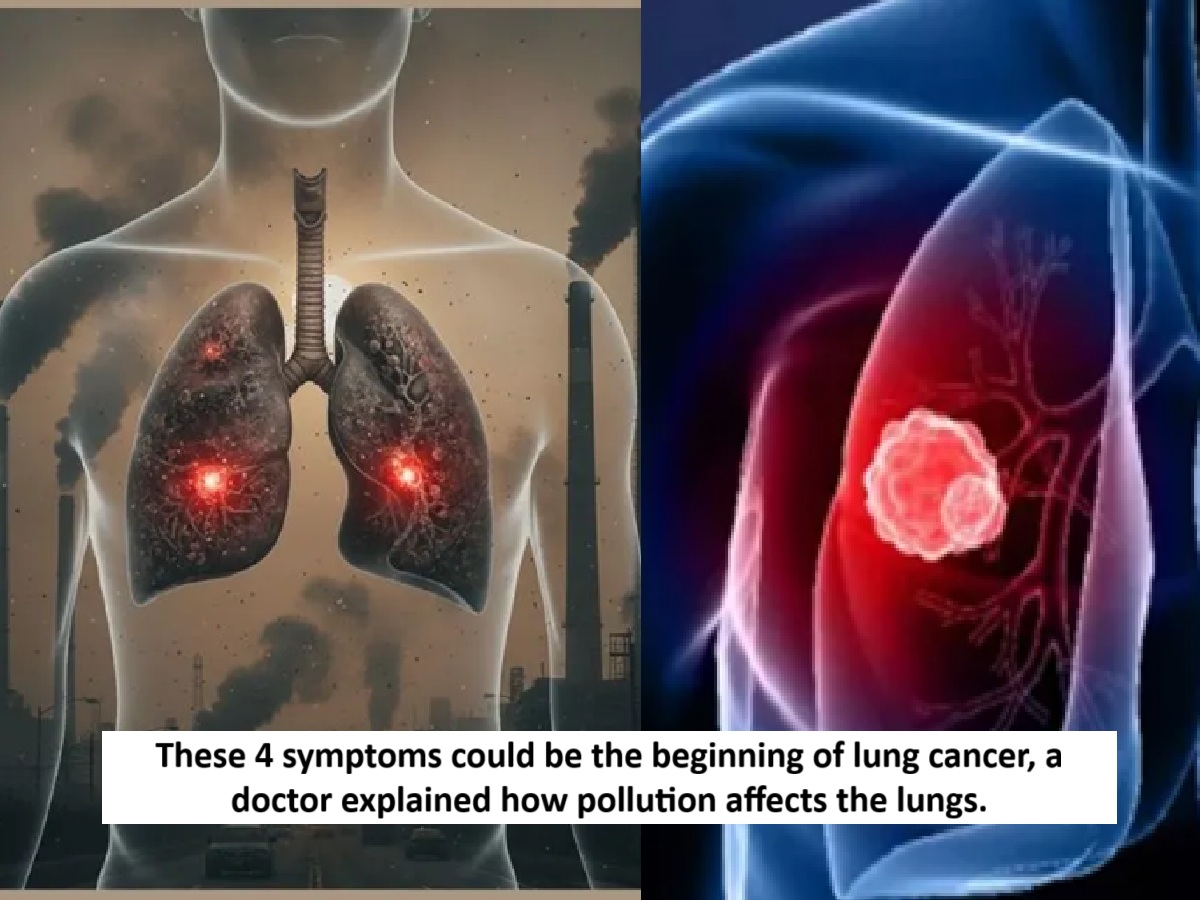
News Topical, Digital Desk : Lung cancer is a serious disease that continues to plague people worldwide. Many people worldwide are affected by it, and many have even lost their lives to it. For years, people thought that smoking was the primary cause of lung cancer, but now there are other causes.
Numerous studies have revealed another dangerous cause of this disease: the air we breathe. In India, especially in metro cities and industrial areas, air pollution has become a major risk factor for lung cancer, even for non-smokers. It is even more dangerous because it is invisible; we cannot see it, yet it reaches our lungs with every breath.
Why is air pollution dangerous?
Dr. Vikas Goswami, Senior Director of Medical Oncology at Max Super Speciality Hospital, Vaishali, explains that air pollution is a mixture of harmful substances such as extremely small dust particles (PM2.5 and PM10), nitrogen oxides, sulfur dioxide, and chemicals called organic compounds. These particles are so small that they can penetrate our body's natural defenses and penetrate deep into the lungs.
How toxic air causes cancer
They can even enter the bloodstream. Once inside, they cause inflammation, damage, and damage the DNA in our cells. Over time, this can lead to changes in cells that can cause cancer. The World Health Organization (WHO) has declared outdoor air pollution and fine particles as Group 1 carcinogens, meaning they are as dangerous as tobacco and asbestos.
Which people are more at risk
Recent studies in India and elsewhere have shown that more people are developing lung cancer without ever smoking, especially in polluted areas like Delhi-NCR . Doctors further explain that breathing polluted air for a long time can be as harmful as smoking several cigarettes daily. Women, children, and the elderly are at higher risk because their lungs are smaller and they breathe polluted air for longer periods.
Early symptoms of lung cancer
People often ignore these initial symptoms or mistake them for allergies caused by pollution. However, if these symptoms persist for a long time, they should not be ignored. These symptoms include:
- Long-lasting cough
- Slight difficulty breathing
- chest discomfort
- unusual fatigue
How to protect your lungs
Check air quality regularly using apps that display the Air Quality Index (AQI) and avoid going out when pollution is high.
Wear an N95 or similar protective mask to block harmful particles.
Keep indoor air clean by using air purifiers, avoiding smoking or burning incense sticks indoors, and opening windows when pollution levels are low.
Eat foods that are good for lung health, such as citrus fruits, leafy vegetables, turmeric and dry fruits, which are rich in antioxidants and help reduce oxidative stress.
If you live in a high-risk area or have a family history of cancer, get regular lung health checkups, even if you don't smoke.
--Advertisement--

 Share
Share



